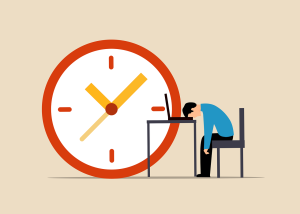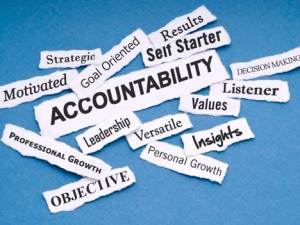Discover how accountability helps conquer procrastination. Learn practical strategies for personal growth and entrepreneurship using a positive mental attitude.
Why Accountability Matters
We’ve all delayed important tasks, launching a business idea, writing content, sticking to a new habit. Procrastination is one of the biggest barriers to growth, and it silently undermines success. Whether you’re on a personal development journey or building a business, one principle will consistently keep you moving: Accountability.
In this post, we’ll explore how accountability helps you overcome procrastination, how it connects with mindset, and how to make it a permanent part of your success system.
Call to Action:
As you read, think of one area in your life where procrastination has been holding you back. We’ll return to it at the end.
Understanding Procrastination: The Silent Success Killer
What Is Procrastination? Procrastination is the act of delaying tasks despite knowing that doing so may cause harm. It’s not laziness—it’s often rooted in fear, perfectionism, or mental fatigue.

Common Reasons People Procrastinate: - Fear of failure or rejection - Perfectionism - Lack of clarity or purpose - Distractions and instant gratification
Procrastination often springs from deeper emotional or psychological triggers that go beyond simple laziness.
One of the most common reasons is fear of failure or rejection—people delay action because they’re afraid their work won’t be good enough or that they’ll be judged.
Perfectionism is closely related; it creates unrealistic standards that can make starting or completing a task feel overwhelming. When individuals believe something must be flawless, they may avoid beginning it altogether.
Another major cause is lack of clarity or purpose. Without a clear understanding of why a task matters or what the outcome should be, motivation tends to fade quickly.
Finally, we live in a world full of distractions and instant gratification—social media, notifications, and entertainment constantly compete for attention, making it easy to choose short-term pleasure over long-term achievement. Recognizing these patterns is the first step toward overcoming them.
Consequences of Procrastination: Missed opportunities - Decreased confidence - Increased stress and anxiety - Inconsistent progress
While procrastination may seem harmless in the moment, its long-term effects can be significant and far-reaching.
One major consequence is missed opportunities—when we delay action, doors that could have led to growth, success, or meaningful change often close before we’re ready.
This can lead to decreased confidence, as repeatedly failing to follow through on goals chips away at self-trust and belief in our abilities.
 Over time, this cycle contributes to increased stress and anxiety, especially as deadlines loom or responsibilities pile up. The mental burden of unfinished tasks can be exhausting and overwhelming.
Over time, this cycle contributes to increased stress and anxiety, especially as deadlines loom or responsibilities pile up. The mental burden of unfinished tasks can be exhausting and overwhelming.
Finally, procrastination leads to inconsistent progress, making it difficult to build momentum or see tangible results. Without steady effort, even the best intentions can stall, keeping us stuck in a loop of frustration and underachievement.
Facing these consequences head-on is key to breaking free from procrastination and reclaiming control of our time and goals.
Call to Action:
Pause and list 3 tasks you’ve avoided recently. Ask yourself why. Awareness is the first step to breaking the cycle.
Accountability: The Key to Consistent Progress
What Is Accountability? Accountability means being responsible to someone or yourself for following through on commitments. It’s the difference between “I should do this” and “I promised I would.”
Types of Accountabilities: - Self-accountability - Peer accountability- Public accountability - Professional accountability
Accountability comes in many forms and understanding which type suits you best can significantly boost your follow-through and consistency.
One of the most foundational types is self-accountability, which involves holding yourself responsible through tools like journaling, habit trackers, and daily goal setting. This method is powerful for building internal discipline and self-awareness.
For those who thrive on connection and shared goals, peer accountability offers a strong support system. This could be a partner, friend, or small group where everyone commits to regular check-ins and encourages one another.
Another powerful motivator is public accountability, by declaring your intentions publicly (on social media, a blog, or to a community), you create a sense of external expectation, which often increases commitment and follow-through.
Lastly, professional accountability involves working with coaches, mentors, or mastermind groups. These relationships provide expert guidance, structure, and often a higher level of commitment.
Blending one or more of these accountability types can create a solid framework for sustained progress and personal growth.
Why Accountability Works: Creates structure and urgency - Reduces decision fatigue - Enhances focus and consistency - Increases follow-through and motivation

Accountability is a powerful driver of progress because it introduces the structure and psychological support we often lack when working alone.
It creates structure and urgency by setting clear expectations and timeframes whether it’s a check-in with a coach or a daily task logged in a journal, knowing someone (even yourself) will be reviewing your progress adds urgency that fuels action.
Accountability also helps reduce decision fatigue, which is a major cause of procrastination. When goals are clearly outlined and someone is expecting results, you spend less mental energy debating what to do and more time executing.
It also enhances focus and consistency by keeping your objectives top of mind, especially when distractions are everywhere.
Lastly, accountability significantly increases follow-through and motivation, not just because someone is watching, but because you begin to build momentum and confidence with each step forward.
Whether it’s internal or external, accountability keeps you aligned with your intentions and less likely to abandon your goals when challenges arise.
Call to Action:
Choose one type of accountability to implement this week. It could be as simple as texting a friend your daily goal.
Entrepreneurship and Execution: Why Accountability Is Non-Negotiable
As an entrepreneur, execution is your edge. You can have brilliant ideas, but if you don’t act, they mean nothing.
Why Entrepreneurs Must Embrace Accountability: - Keeps momentum when passion fades - Clarifies and aligns daily actions with long-term vision - Fights isolation and burnout - Provides external feedback and perspective
For entrepreneurs, accountability isn’t just helpful, it’s essential. The entrepreneurial journey is often a rollercoaster of highs and lows, and accountability helps keep momentum going even when the initial passion starts to fade, without it, it’s easy to drift or get stuck in cycles of busyness without progress.
Accountability also clarifies and aligns your daily actions with your long-term vision, ensuring that what you're doing today contributes to where you ultimately want to be. This alignment prevents wasted effort and helps prioritize what truly matters.
Moreover, many entrepreneurs struggle with isolation and burnout, especially when working solo or leading a small team. Having someone to check in with whether a peer, coach, or mastermind group creates connection and shared responsibility, which combats loneliness and emotional fatigue.
Finally, accountability offers valuable external feedback and perspective, which is often missing when you’re in your own bubble. A second set of eyes can reveal blind spots, challenge assumptions, and push you to level up in ways you wouldn’t be alone.
Many successful founders use tight feedback loops and brutal self-accountability to drive progress. Having someone (or something) to report to creates pressure that leads to better performance.
Call to Action:
If you’re a solo entrepreneur, ask yourself: who’s holding me to my goals? If the answer is “no one,” it’s time to build your accountability circle.
The Secret of Getting Things Done (Inspired by Napoleon Hill)
In Success Through a Positive Mental Attitude, Napoleon Hill shares a crucial insight: the secret to getting things done is to act immediately. Procrastination stems from hesitation, but forward momentum starts the moment you say, “Do it now.”
How to Apply the “Do It Now” Mentality: - Use the phrase “Do it now” as a mental cue whenever you’re stalling - Break large tasks into tiny, immediate steps - Set micro-deadlines to force motion - Focus on action over perfection
The Positive Mental Attitude (PMA) Connection: A PMA isn’t just about being cheerful—it’s about expecting solutions, not problems. When paired with accountability, PMA becomes the fuel behind every action.
Call to Action:
Think of one meaningful task you’ve avoided. Say “Do it now!” and take the first step within the next 10 minutes.

How to Build Accountability Into Your Life
Success systems are built, not born. Here’s how to create an environment where accountability thrives:
- Set Clear Goals: Use SMART criteria (Specific, Measurable, Achievable, Relevant, Time-bound)
- Track Progress Daily: Journaling, habit tracker and daily goal setting help keep tasks visible
- Find an Accountability Partner: A weekly 10-minute call can change your trajectory
- Join a Mastermind Group: Surround yourself with people who challenge and support you
- Celebrate Small Wins: Reinforce progress by rewarding action
Call to Action:
Schedule a 30-minute accountability planning session this week. Set goals, choose your system, and commit to tracking.
Turn Accountability Into Your Competitive Edge
Procrastination thrives in silence, isolation, and disorganization. Accountability brings visibility, energy, and momentum. Whether you’re pursuing personal growth or building a business, your success depends on consistent action—and action starts with choosing to be accountable.
Final Call to Action:
Comment below: What’s one goal you’re committing to this week—and how will you hold yourself accountable?
